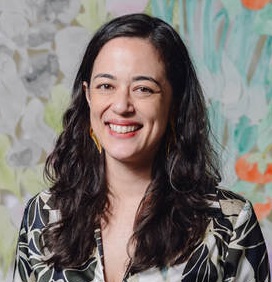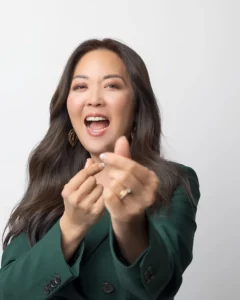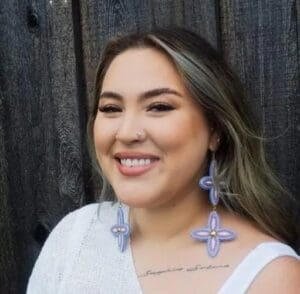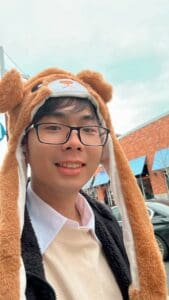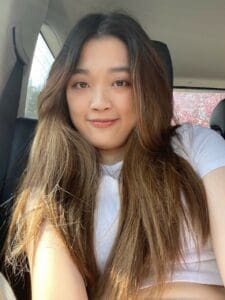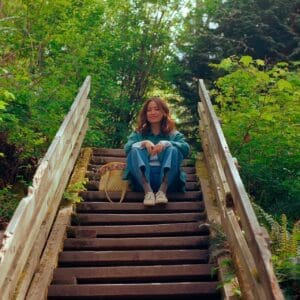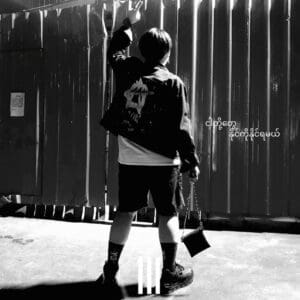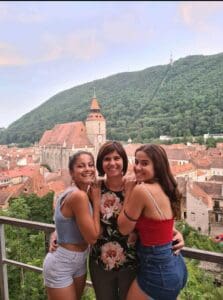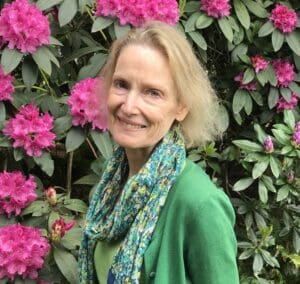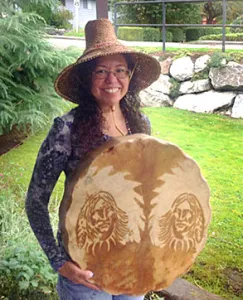Linda Sarsour: Intersectional Activism and Organizing
Linda Sarsour is an activist most known for her work in organizing the 2017 Women’s March, involving an estimated four million participants nationwide.
Today, she leads the organizations, MPower Change and Until Freedom. Sarsour discusses what intersectional organizing looks like, as well as what she has experienced as a Muslim activist in these times.
Sarsour penned, We Are Not Here to be Bystanders and a young readers book, We’re In This Together.
Valley and Mountain Fellowship will be hosting Linda Sarsour to speak at the event, Against Islamophobia & White Supremacy on Sunday, January 22nd at 3:30 pm at Seattle’s Rainier Arts Center. This is a part of Valley and Mountain Fellowship’s Set Us Free From Fear series.
A New York Times article referred to in the interview is here.
Producers: Laura Florez and Yuko Kodama
Organization for Prostitution Survivors
KBCS’s Kevin Henry interviews, Rebekah Fonden, Board President of the Organization for Prostitution Survivors (OPS).Fonden, a survivor herself, talks about how to support survivors of the sex trade and discusses available resources. She also shares her personal story.
Nature: Trumpeter Swans
KBCS’s Yuko Kodama and Seward Park Audubon Center Lead Naturalist, Ed Dominguez were at Seattle’s Union Bay Natural Area in the University District, and came across the Trumpeter Swans in the winter of 2019.
Producer: Yuko Kodama and Ed Dominguez
Photo: Ken Schneider
Open Studio Cambodia Exhibit
How are Cambodian artists approaching contemporary art today? Lauren Iida is an Artist and Founder of Open Studio Cambodia, an artist collective based in Siem Reap, Cambodia. Iida founded this organization in 2018. It mentors, represents, and provides supplies and communal studio and gallery space to a small group of local Cambodian contemporary artists.
KBCS spoke with Iida at The Vestibule in Ballard, where Open Studio Cambodia artists’ work is featured through December 17th in the exhibit, Starting to Work Again: Contemporary Cambodian Art. She describes the contemporary art scene in Cambodia today and introduces some of the artists featured in this exhibit.
Producer: Yuko Kodama
Photo: Lauren Iida
Stand-up Comedian and Writer, Julie Kim
Teaching Lushootseed to Toddlers
Lushootseed is the language spoken by Coast Salish tribes in the greater Seattle area and north to Skagit River Valley near Bellingham and Whidbey Island, and south to Olympia and Shelton. In 1819, Congress passed the Civilization Fund Act to assimilate indigenous youth to western culture. The policy authorized forcible separation of indigenous children from their families to be sent to boarding schools far away, where they were to be stripped of their language, culture and religious practices. It wasn’t until the 1970’s that this practice was outlawed. This caused a severe disruption in likelihood for traditional practices and lifestyles to continue.
Today, members of these communities are reawakening their native tongue through education to everyone from 6 month olds, elementary and high school students and adults.
Jasmyne Diaz is an enrolled Tulalip member and shares a peek into her work of teaching Lushootseed language as a Teacher Assistant to six-month to two-year old children in Tulalip, Washington through the Tulalip Lushootseed Language Program
Producers: Laura Florez and Yuko Kodama
Bellevue College Global Leaders Music Picks
Du Dinh
Hi guys, my name is Du Dinh. I’m currently one of the Global Leaders at Bellevue College. This is my second year here and my major is computer science. I love playing sports, video games, listening to music and throwing Pokemon games on YouTube. Today I would like to share one of my favorite songs with you guys. The name of the song is called “Có Đâu Ai Ngờ.” It is a Vietnamese song by a Vietnamese artist, Cam. This song is about love and the melody and it’s really slow and cute. I hope you can enjoy it and have a nice day!
Jemima
One of my favorite songs is “Tout Seul” by Gally and Heritier Wata. It is one of my favorite songs because it is a mix of emotions. It is quiet and at the same time deep. It’s a song that I discovered when I went to Canada to see my brothers and sisters and I know it was one of the favorite songs of my brothers. So every time that I listen to it, I just remember summer there and a lot of memories. I feel just quiet, calm and happy. Even if it’s a sad song – I don’t know how, but I feel happy, because it also relates to a lot of stuff that has happened in my life before. I hope you enjoy it!
Julia
Hey guys, my name is Julia and I’m one of the Global Leaders at Bellevue College. I’m from Taiwan and I’m studying Business. I want to share this song called “If Only” by Ozi. He is a Taiwanese singer. This song is basically about rewinding time, and what he would do if he could talk to his grandma. I hope you like the song!
Kelan
Hi, my name is Kelan and I come from China. This is my third year in the U.S and my second quarter at Bellevue College. I’m studying Digital Media Arts. I’m also a singer and songwriter. The song I’m going to introduce is actually a song that I released six years ago. It’s called “Flower”. This was one of the few songs that I wrote when I just started songwriting on guitar. Writing songs to me is like writing journals. I like to document my thoughts with melodies, and this song is one of the examples. A flower is a metaphor for thoughts that come and go and never settle for anything. It doesn’t belong anywhere. A flower is free. It could go to any place, just like your thoughts. This song was awarded the top 20 singles by the Singapore Freshmusic Award in 2017. Please enjoy and I hope you like it!
Myo Han Tun Kyaw
Hello everyone, my name is Myo Han Tun Kyaw and I’m one of the Global Leaders from Burma. I’m currently a computer science student at Bellevue College. Today, I would like to share a song from my country called “Yone Kyi Yarg” by Lay Phyu . Although the song was very popular in 2010, it got popular during the protesting stage of the Spring Revolution, when we protested against the military government.
So the reason why this song holds so much meaning for Burmese people, is because it tells us that we have to believe in what we are doing. And although we might have regrets and losses we still need to keep going to reach the final goal. In this song, people are literally sacrificing their life for this thing called “belief”. It is relevant during the protests, because people are dying on the streets due to the military government.
Those people are fighting for freedom and we all are. So it helps us not to give up easily on our rights and freedom. The song is motivating and it’s not only for protesting, you can listen to it anytime to get you motivated. It’s a really good song. Enjoy!
Nada and Leda
Nada: Hi everybody my name is Nada.
Leda: Hi everybody my name is Leda.
Nada: And we are from Italy. I’m currently studying at Bellevue College for my bachelor’s degree in digital marketing. I love this song called “A Te” because it truly reminds me of the bond I have with my family.
Nada and Leda: In Italy, the family “La Famiglia” is really important.
Women’s Voices from the Holocaust
The performance, The Ruins of Memory: Women’s Voices of the Holocaust highlights the experiences of Jewish women throughout the European continent who navigated their way through a horrific time in the 20th century. It’s performed by Tales of the Alchemysts Theatre at Taproot Theater this Friday, Saturday and Sunday. You can find more information on the event here.
Producer: Yuko Kodama
Photo: by Michael Loggins
Incorporating Lushootseed Language Into Life
Reawakening Lushootseed Language: Language Warriors
Lushootseed is the language spoken by Coast Salish tribes in the greater Seattle region. In 1819, Congress passed the Civilization Fund Act to assimilate indigenous youth to western culture. The policy authorized forcible separation of indigenous children from their families to be sent to boarding schools, where they were to be stripped of their language, culture and religious practices. It wasn’t until the 1970’s that this practice was outlawed. Today, members of these communities are reawakening their native language through educational programs.
KBCS’s Laura Florez spoke with Lois Landgrebe, of Snohomish, Stillaguamish, Duwamish and Nez Perce descendants, and a Lushootseed educator at Quil Ceda Tulalip elementary school in Tulalip, Washington through the Tulalip Lushootseed Program. Landgrebe describes what it means to be a language warrior.
Producers: Laura Florez, Yukiko Arichi and Yuko Kodama



